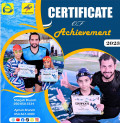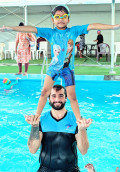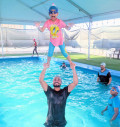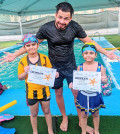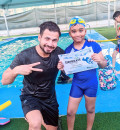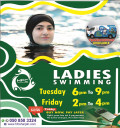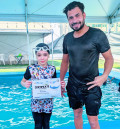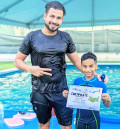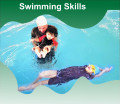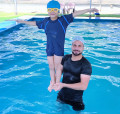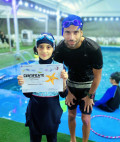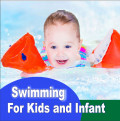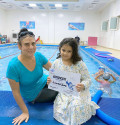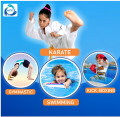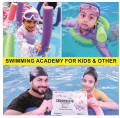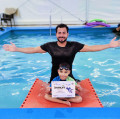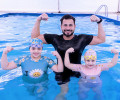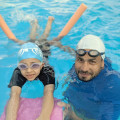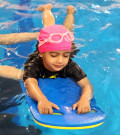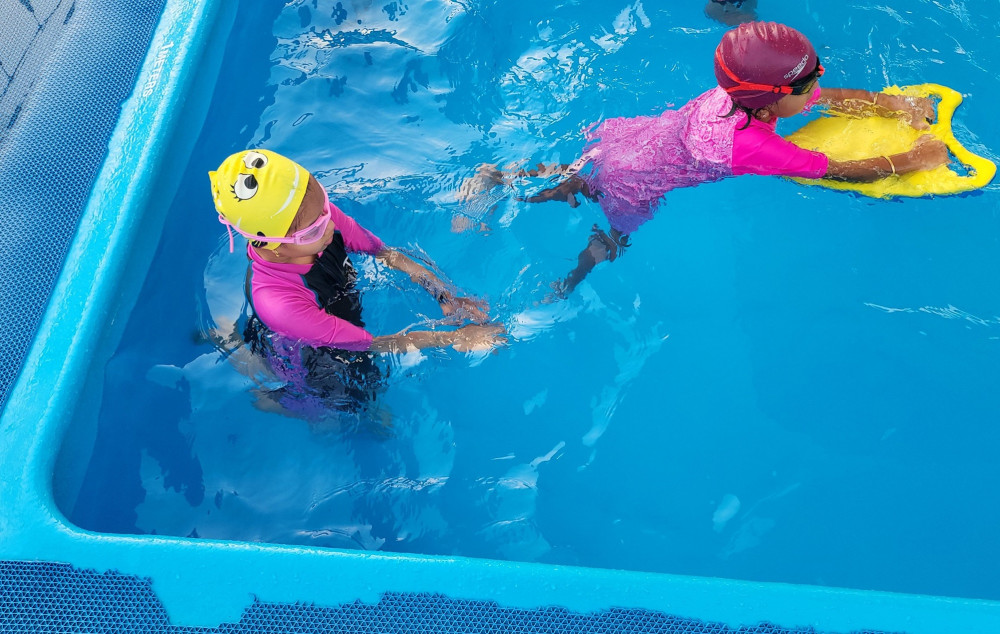
Small Kids Swimming Skills Initiating Their Aquatic Journey
2024-02-03 - swimmingSwimming is not just a life skill; it is an exciting
adventure that begins from the early years of a child's life. In this article,
we explore the importance of teaching small kids swimming skills and the
initial steps to ensure a positive and enjoyable aquatic experience.
Introduction
Importance of Teaching Small Kids Swimming Skills
As parents and caregivers, instilling swimming skills in
small children is a crucial responsibility. Beyond the joy it brings, early
swimming education offers a myriad of benefits, from physical development to
cognitive enhancements and safety awareness.
Overview of the Initial Steps
Embarking on the journey of teaching kids to swim involves
thoughtful consideration and deliberate steps. It's not just about splashing in
the water but about creating a foundation for a lifelong love of swimming.
Benefits of Early Swimming Education
Physical Development
Engaging in swimming from a young age contributes
significantly to a child's physical development. It promotes muscle strength,
coordination, and flexibility, laying the groundwork for a healthy and active
lifestyle.
Cognitive Benefits
The cognitive advantages of early swimming education are
noteworthy. The spatial awareness, problem-solving skills, and enhanced motor
skills acquired in the pool have a positive impact on a child's overall
cognitive development.
Safety Awareness
Teaching small kids swimming skills is synonymous with
instilling vital water safety knowledge. Early exposure to basic water safety
rules helps build a foundation for a lifetime of safe aquatic activities.
Choosing the Right Age to Start
Infant Swim Programs
Contrary to popular belief, it's never too early to
introduce infants to the water. Specialized infant swim programs focus on
gentle techniques that acclimate babies to the aquatic environment, fostering a
positive relationship with water from the start.
Toddler Swim Classes
As toddlers become more mobile, enrolling them in toddler
swim classes provides an opportunity for structured learning. These classes
focus on basic swimming movements and water safety, setting the stage for
future swimming proficiency.
Creating a Positive Environment
Familiarization with Water
Before diving into formal lessons, allowing small kids to
familiarize themselves with water in a playful setting is crucial. Gradual
exposure builds comfort and reduces anxiety associated with the aquatic environment.
Building Trust with the Instructor
Establishing trust between the child and the swimming
instructor is paramount. This trust forms the basis for effective learning,
ensuring that kids feel secure and supported during their initial forays into
swimming.
Basic Water Safety Rules for Kids
Understanding Pool Hazards
Teaching kids about potential pool hazards is an essential
aspect of their water education. Educating them on pool rules, the importance
of supervision, and recognizing potential dangers fosters a sense of
responsibility.
Teaching Floating and Treading
Introducing basic floating and treading techniques early on
enhances a child's ability to stay afloat and manage in the water. These
fundamental skills serve as building blocks for more advanced swimming
techniques.
Importance of Parental Involvement
Encouraging Participation
Parents play a pivotal role in nurturing a child's swimming
skills. Encouraging active participation, attending swim lessons, and engaging
in water-based activities together create a positive and supportive
environment.







.jpg)




















